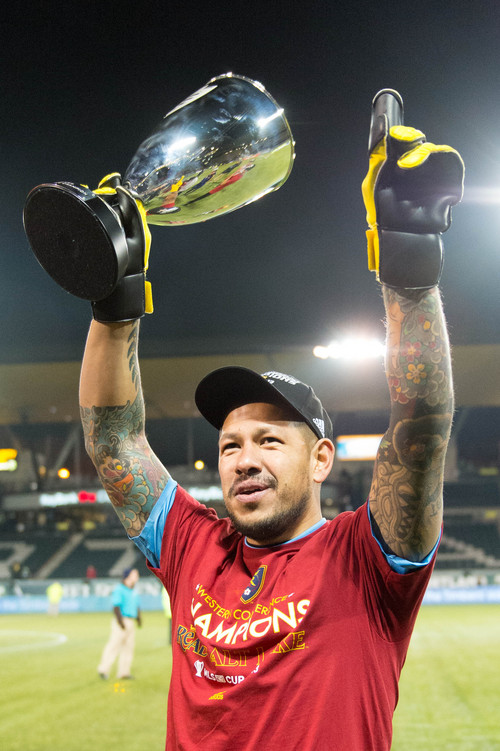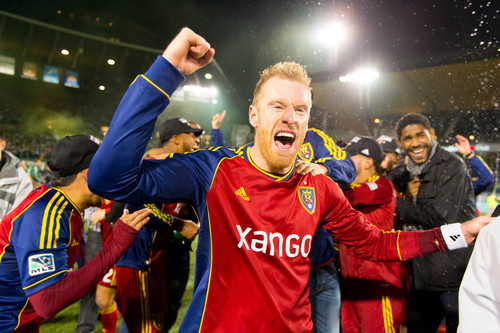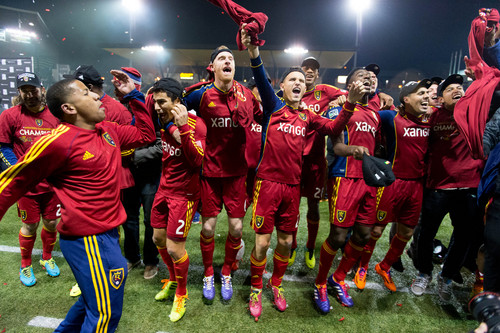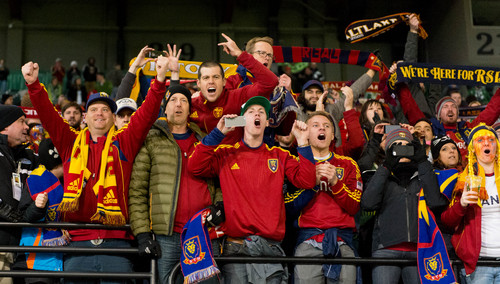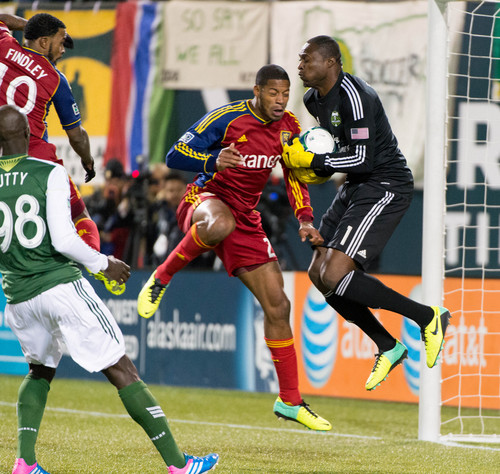This is an archived article that was published on sltrib.com in 2013, and information in the article may be outdated. It is provided only for personal research purposes and may not be reprinted.
Sandy
The Mountain West logos and football yard-lines on the Rice-Eccles Stadium field looked like they were colored over by a fourth-grader using black markers. Jason Kreis was a good player on a really bad team. Nobody knew for sure how long Real Salt Lake would last as a Major League Soccer expansion team in 2005.
And now the team plays in a spectacular stadium, Kreis is a great coach of a really good team and the franchise is an MLS success story, with recognizable players and an expanding fan base.
"It's grown up," RSL president Bill Manning said.
This all fits together, on and off the field. It's a tribute to former owner Dave Checketts' vision, current owner Dell Loy Hansen's investment and a management team that has created a winning product and marketed it well.
RSL initially was embraced by a devoted core of fans. The unknown was how wide that following ever could become. The day of that inaugural game at Rice-Eccles Stadium, the team's temporary home, I asked, "Will MLS still be here in 2015?"
That question seems silly now — partly because the franchise could have failed long before that date. And yet, with its 10th season starting almost exactly three months after Saturday's MLS Cup final at Sporting Kansas City, Real is a fixture in the Salt Lake Valley.
"We've just built this fan base that just loves this team," Manning marveled.
MLS commissioner Don Garber once said the trick is to "try to convert people who like sports into liking soccer and take all the people who like soccer and connect them with our teams."
That's happened here. Soon after arriving from the Philadelphia Eagles' front office in 2008, though, Manning wondered what he'd done. Even with Rio Tinto Stadium about to open, RSL had roughly 5,000 season-ticket holders and sponsorship revenue was low. His outlook on the new job? "Trepidation," he said this week.
In those five years, season-ticket sales have doubled. Manning is targeting 11,000 in 2014 and 14,000 or more someday. Once having hoped for $4 million in sponsorships, he's now thinking $12 million is a reasonable goal. RSL is No. 2 in the league in local TV ratings, No. 4 in revenue and No. 5 in season tickets, while playing to 95.2 percent of capacity. That growth is as remarkable as RSL's potentially becoming the fifth MLS team to win multiple championships. The team sold out a Sept. 21 game with San Jose — the night of the BYU-Utah football game.
Driving it all, even beyond the team's consistent performance, is a roster that has defied the usual turnover of MLS teams.
"Your fans really identify with players over time," Manning said. "I think we're one of the franchises that figured that out. When it's constant change, your fans don't identify with the guys."
The continuity helps in the locker room and on the field. RSL has an established culture, with players such as captain Kyle Beckerman, goalkeeper Nick Rimando and defender Nat Borchers mentoring young players.
Checketts put all of this in place, replacing his original coach with Kreis and hiring Manning and general manager Garth Lagerwey. This year, Hansen's becoming the full owner "really solidified us financially ... made the franchise secure," Lagerwey said, with backing that "allows you for the first time to think strategically."
Plans call for RSL to go much further in player development by owning minor-league teams on two levels by 2016, following a pro baseball model. Such moves, Lagerwey said, would make RSL "a real sports franchise."
That's already happened, to a remarkable degree.
MLS Cup
O RSL at Sporting KC
Saturday, 2 p.m.
TV • ESPN


